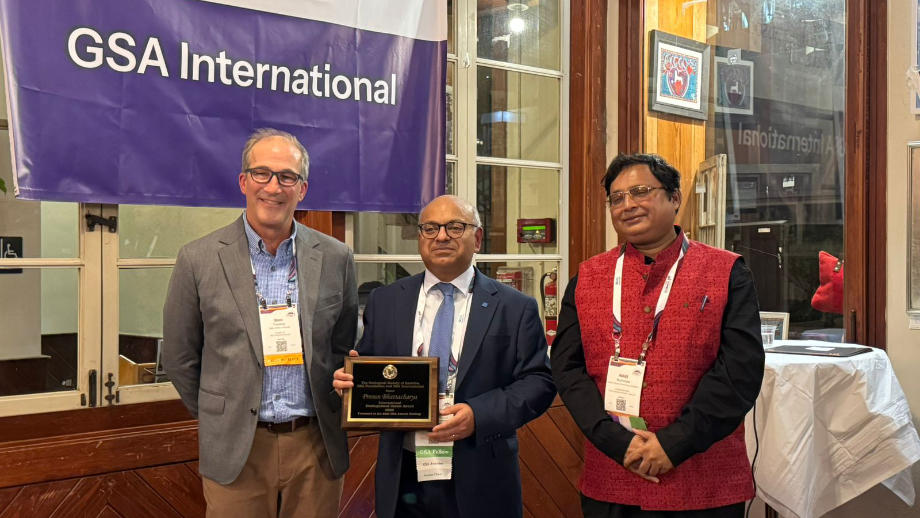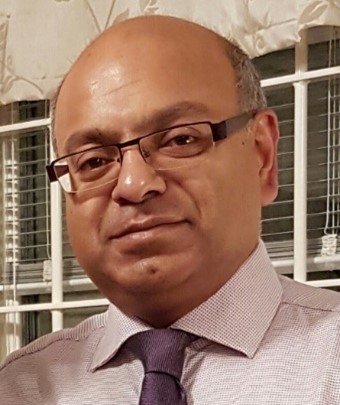KTH professor receives prestigious geoscience award

Thanks to research developed by KTH, more than one million people have gained access to safe drinking water with life-saving health benefits. Professor Prosun Bhattacharya has now been awarded one of the most distinguished honours in geoscience for his work.
Professor Prosun Bhattacharya has been awarded the International Distinguished Career Award by the Geological Society of America , one of the most prestigious recognitions in geoscience. The prize is awarded for outstanding research, education, and international collaboration contributions.
"It is both humbling and inspiring. I see it as recognition of a collective journey with students, colleagues, and partner institutions. It also confirms KTH's commitment to international, challenge-driven research," Bhattacharya says.
KTH President Anders Söderholm highlights the broader significance of the award:
"This honour reflects his decades of leadership in groundwater science and commitment to translating research into public-health impact across continents. Bhattacharya exemplifies the international collaboration and societal relevance that KTH values."
Groundwater science for global impact
Since joining KTH in 1994, Bhattacharya has focused on geogenic groundwater contamination, particularly arsenic and fluoride. Studies across Bangladesh, India, Latin America, and Africa revealed contaminated groundwater as a scientific challenge and an acute public health crisis. From this grew KTH's international research group on arsenic in groundwater, which is today a global knowledge hub.
To advance knowledge sharing, Bhattacharya founded the journal Groundwater for Sustainable Development in 2014. It is a leading platform for presenting research results to decision-makers and practitioners.
Collaboration that changes lives
Close collaboration with researchers, students, and communities worldwide is central to his work. Sida-supported projects and extensive cooperation with UNICEF, the University of Dhaka and Bangladesh's Department of Public Health Engineering have built local capacity and translated research into practical solutions embedded in national policy.
One example is the SAMSIT project, where the Sediment Colour Tool was developed to help local drillers target arsenic-safe groundwater. This approach was adapted into national guidelines and digested through the ASMITAS platform, scaling up safe-water access to more than one million people, preventing severe health impacts.
"Science must reach all the way to the people who are affected. Groundwater research becomes meaningful only when it translates into solutions that save lives," he emphasises.
Nurturing a generation of new researchers
At KTH, Prosun has supervised several doctoral and master’s students. Many of them are today professors, government advisors, or leaders of organisations driving water issues forward.
"I hope that the next generation of researchers will carry four things with them: scientific rigour combined with empathy; openness in sharing data and recognition; a desire to translate research into real change, and the ability to build strong relationships across cultures and disciplines," he says.
Looking ahead
Despite the successes, major challenges remain. Over-extraction, pollution, and climate change threaten the world's groundwater resources.
"We need better monitoring, stronger governance, and more investments in people, laboratories, and digital tools. Groundwater is the world's invisible backbone of water supply, and with the right knowledge and collaboration, we can preserve it for future generations," Bhattacharya concludes.
Text: Johanna Bernhardtz ( jobernh@kth.se )

